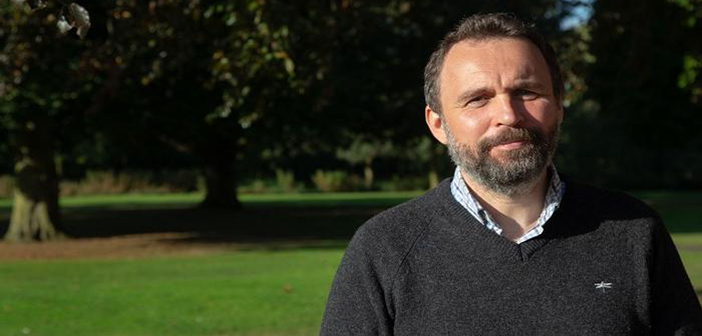English farmers need greater certainty from Government to make the most of their land to boost both food productivity and environmental benefits, a sustainability expert has said.
Professor Michael Lee, deputy vice-chancellor of Harper Adams University and Professor in Sustainable Livestock Systems, said current plans for post-EU land and farming subsidies are based on “blind optimism”.
The new Environmental Land Management Scheme – which replaces the EU’s Common Agricultural Policy – will distribute funds previously made available under CAP. Instead of these payments, it is intended to pay farmers for actions undertaken which help the environment and will come into effect in 2024.
However, both the Public Accounts Committee and Professor Lee believe that farmers need a greater level of information from Government to enable them to plan ahead effectively.
Professor Lee said: “A lack of detailed information of how the new schemes will support productivity improvement and deliver land use change towards environmental stewardship are of the greatest concern to the farming community.
“Farmers are up for the challenge of delivering sustainable agriculture and maintaining our world leading quality standards, but they need to know the rules of the game and how their businesses’ will be supported.
“This lack of detailed information fuels speculation of a drive to reduce UK agricultural production through wide-spread land conversion and replacing UK produced food with an increase in imports to offset national greenhouse gas emissions.
“Such a drive would be naïve at best. Greenhouse gases do not recognise country boundaries, so reducing food production in a nation which has a lower emissions intensity to increase food production in less efficient parts of the world will increase net global warming.”
Professor Lee’s concerns on the lack of detail were also reflected by members of the Public Accounts Committee in their report, which noted that ELMS currently appears ‘beset with many of the same issues that have undermined ambitious Government programmes in recent years’ and the current paucity of information is causing anxiety for the sector.
They also noted that explanations are needed from Defra to ensure the plans do not lead to a greater amount of food being imported into the country.
Professor Lee added: “Harper Adams University, along with our steering partners – the NFU, Morrisons and McDonalds – established last year the School of Sustainable Food and Farming.
“The school will educate and support the sector to make the right decisions within their businesses to realise sustainable agriculture and a healthy agri-food sector.
“We recognised that farmers and agri-food businesses needed support to deliver the required agricultural transition post-CAP and to deliver the new Agriculture Act and Environment Act.”
Professor Lee continued: “Whilst the School of Sustainable Food and Farming can support the educational and research needs of the sector and is ready to be called on, a more transparent overview of the financial support schemes for the farming and land-use sector is critically needed in concert.
“Without such timely clear information, the stress on our farming community will become too much to bear for many farms, farmers and their families at a time when providing them support should be at the forefront of the UK Government’s thinking.”


